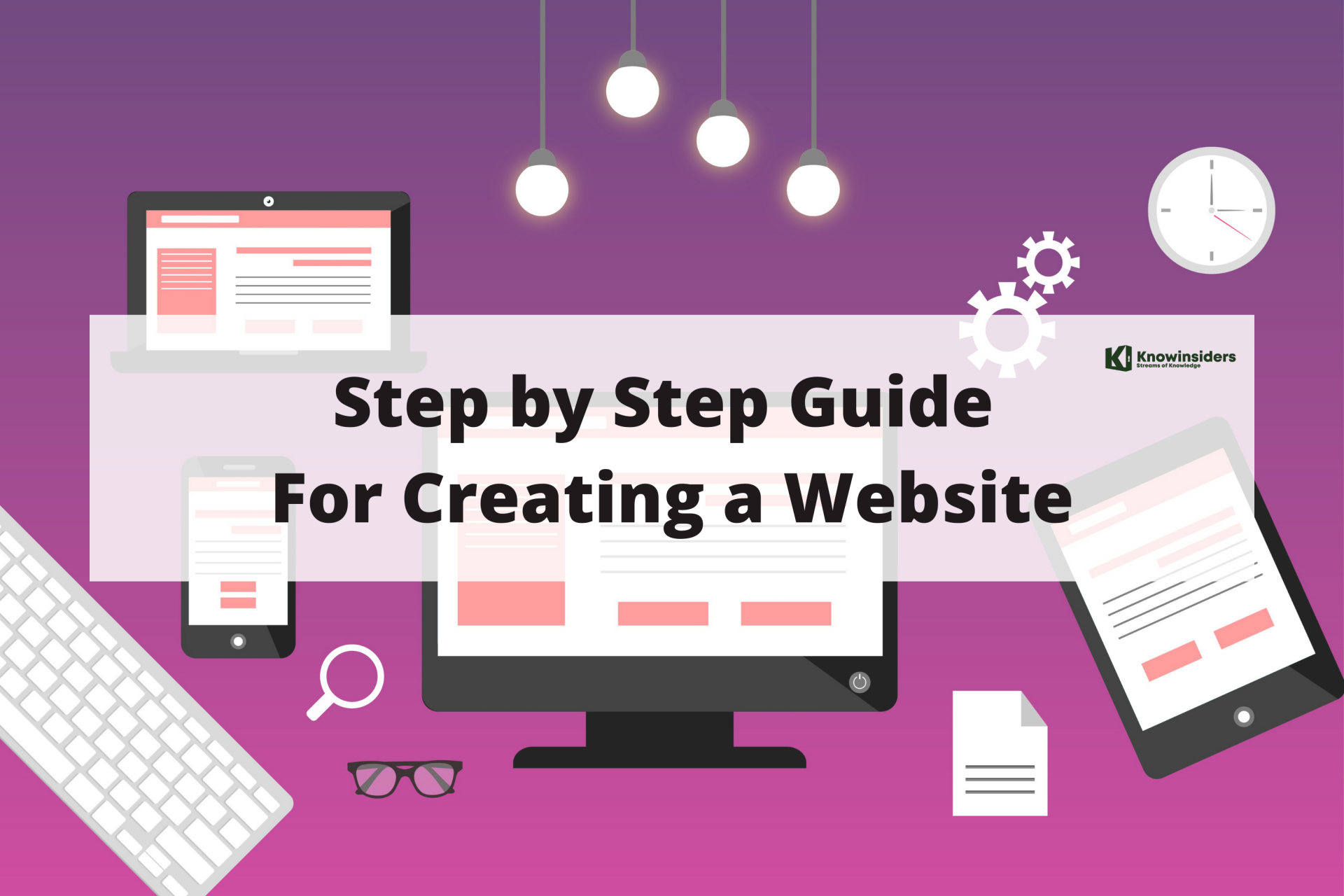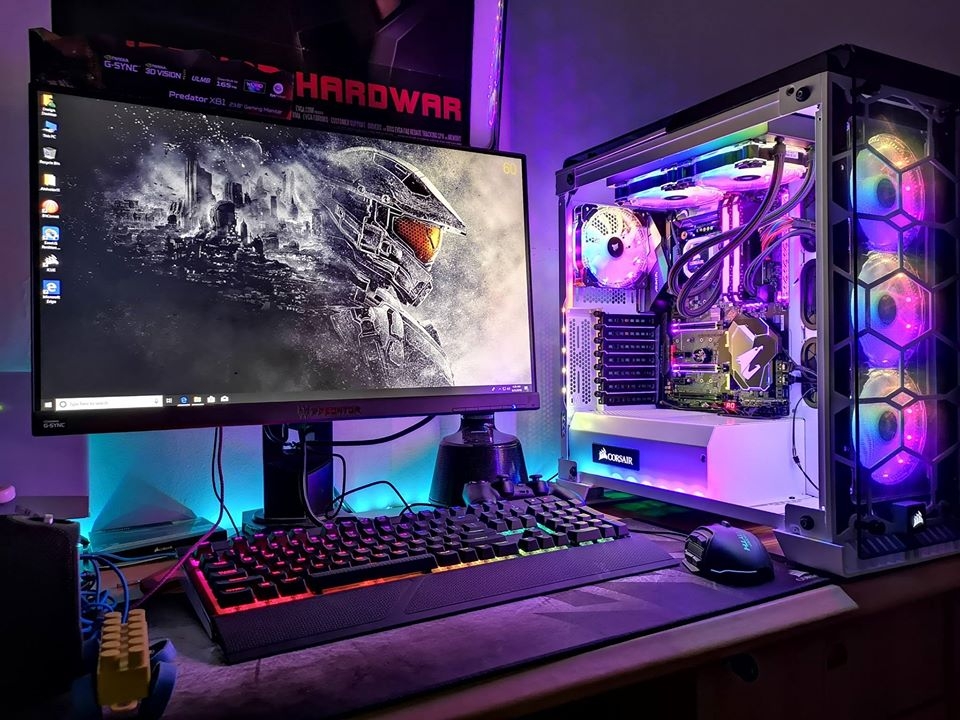How To Win At Poker: Tips For Beginners and Advancers
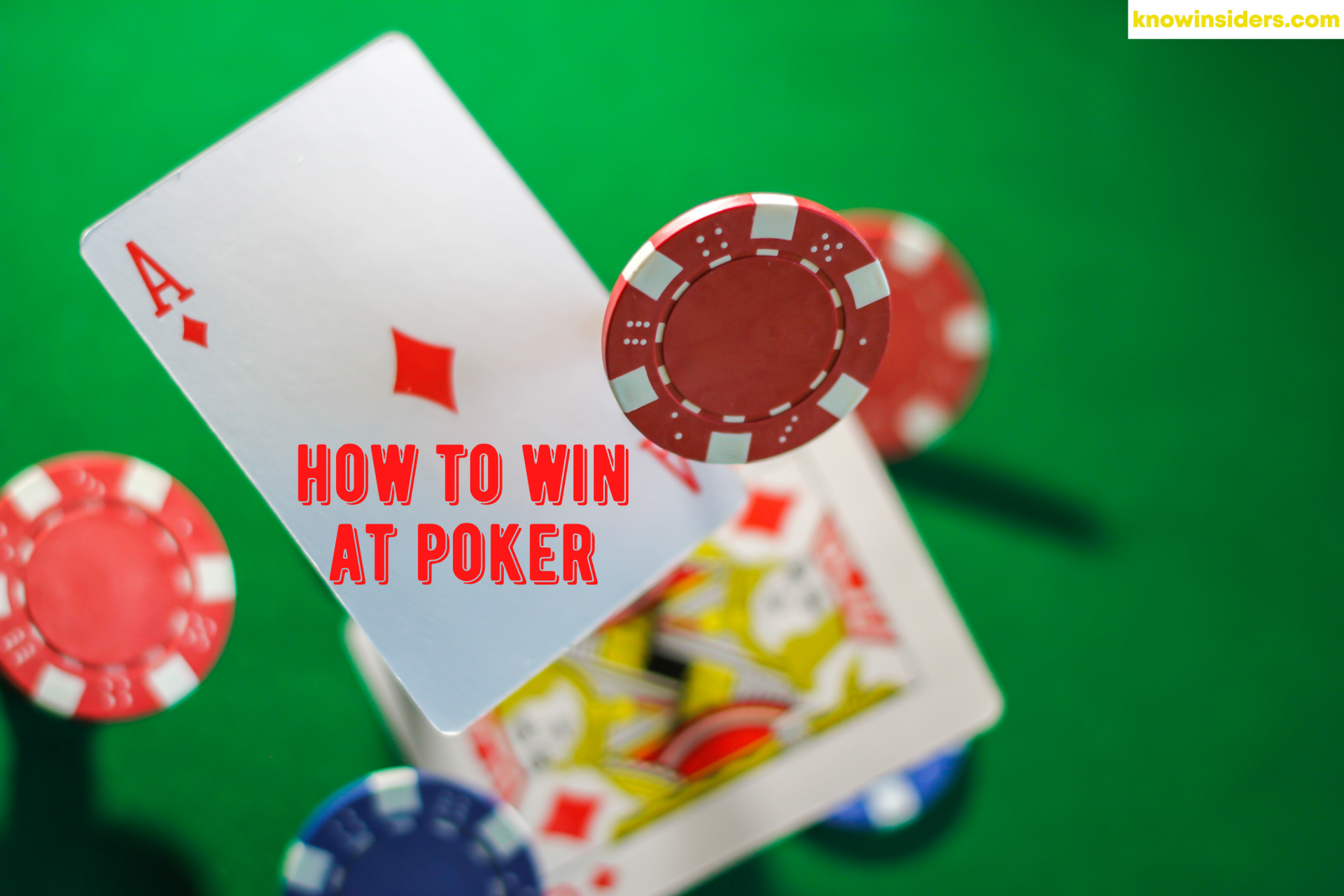 |
| How To Win At Poker: Tips For Beginners and Advancers. Photo KnowInsiders |
There is more to winning at poker than just trying to find the best strategy. While learning a solid, fundamental strategy is important, it is not necessarily going to make you an expert player.
Winning poker: Key concepts
To consistently win at poker over the long term, there are three key concepts that you must master. You must understand:
Where the money comes from
That poker is a people game
That your tilt must be conquered
You can study strategy until you are blue in the face, but if you fail to understand and master any of these 3 concepts, your potential will be severely limited.
Where The Money Comes From In Poker
This is the most important concept and something very few poker players will ever really grasp. Indeed, the concept is an enigma for the vast majority of players.
After all the hands are played, and all is said and done, once the long-term is reached.. how the heck does anyone show a profit? Well, truth is, very few actually do. Due to rake and a number of other factors, very few people actually win money at poker over a significant sample size of hands. Estimates range from as low as 3%, but in reality, the number is likely in the 8% to 10% range. So yes, at least 90% of people who ever play poker for real money, will be losers.
Even so, you don’t have to become a statistic. I didn’t supply you with this information to discourage you, quite the contrary. In fact, there are things you can learn that most people are not talking about that will give you an edge over everyone who refuses to acknowledge or learn the information. That is what this article is all about. By the end of reading this, I want you to be crystal clear on how professional poker players make money over the long term.
Monster Hands Do Not Make You Money
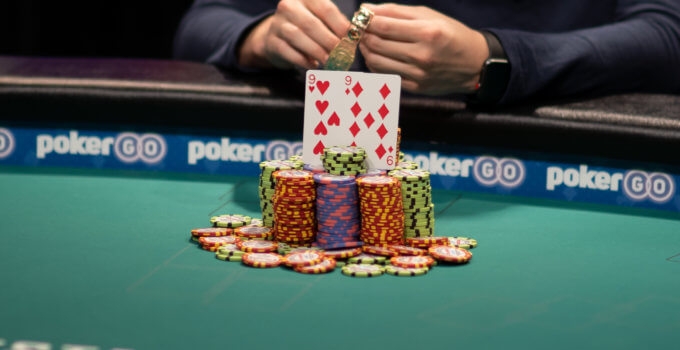 |
| Photo Poker Journal |
First of all, let me get something out of the way. You do not profit in poker from making big hands and then getting paid off. Everyone, including unskilled players, win money in these spots. I am not saying that maximizing your profit when you make a big hand is not important. It is. We need to maximize profit is all areas of our game. What I am saying is that winning money and making money are two different things. Just because you got AA all-in preflop versus KK in a specific hand does not mean you won anything.
A graphic showing that Player A does not make any money if Player B makes the same amount of money. They cancel each other out.
Player A nor Player B makes anything if they both make $1000 the same way
In fact, since everyone would gladly get KK all-in pre-flop, you actually made $0. Every player will pick up the same amount of AA, KK, QQ, hit the same number of sets or two pairs.. these hands are easy to play. In fact, it’s really hard to misplay these hands. Therefore, there is very little room for actual profit when you have a strong hand. Put another way, if every player plays exactly 1 million hands in their career and makes $500 with their big pairs, and $500 with their flopped nut hands, then nobody makes anything since, in order to make $500, each person has to take $500 from the player pool. Take a look at the graphic below.
| Just to be clear on this point, since there seems to be a lot of confusion out there as to what I mean by this. Imagine that there are only two hands you can pick up in poker, either AA or KK. And, you play heads-up versus someone for an infinite number of hands. Each of you will pick up AA half the time and KK the other half. Now, assuming you each play those hands exactly the same, where exactly can someone make a profit? By some extreme amount of luck, one of you might win a bit more over a lifetime.. but it would be negligible. What really matters is EV, or theoretical, dollars. And the sum of that would be exactly $0 profit for both you and your opponent. |
Reciprocality Governs Profit
Don’t fall victim to something almost all people are guilty of; putting way too much emphasis on big hands. If most players get their pair all in vs. over cards and their hand holds up, they pat themselves on the back because they just won a big pot and think they made money. I have news for them; they didn’t.
When viewed from a long-term perspective, they made $0. You simply do not make money by getting all in pre-flop with QQ vs. AK, or some other variant of this situation. The spot will theoretically occur with the same frequency for everyone, yielding a net sum profit of $0 over the long term. Everyone negates everyone else’s profit in these spots! In other words, if everyone plays exactly the same and picks up the same exact hands and faces the exact same situations, no one but the house wins.
READ MORE: Top 10 Most Expensive Toys and Games in the World
Tips To Win Poker
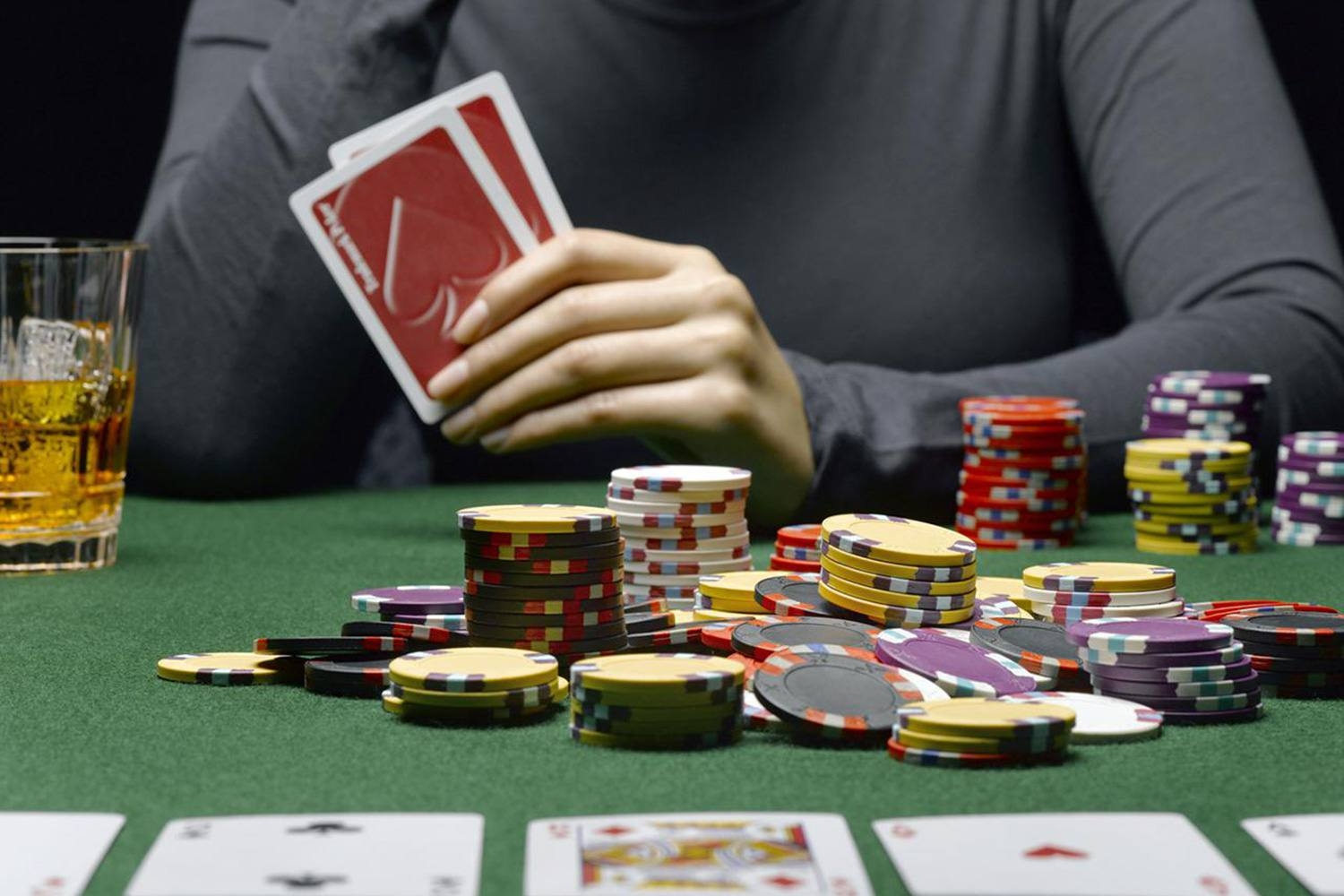 |
| Photo Liveabout |
Limiting your range is how to win at poker in Texas Holdem
One of the biggest mistakes inexperienced and losing players make is to play too many weak hands and starting hands. Folding over and over isn’t a ton of fun, so it’s understandable you want to get in there and play a bunch of hands. And you’ve probably seen Tom Dwan on TV playing seemingly every hand.
But patience is a virtue if you’re trying to learn how to win at poker, especially against an aggressive table full of good players who love to gamble. That’s not to say you should only play aces, kings, or other strong hands. By all means, play suited connectors in position, just don’t get in the habit of playing too many hands or you’ll lose money. This is especially true for those new to the game. Once you become more experienced, you can comfortably expand your pre-flop range and learn how to win with a range of hands.
Play a balanced range — proper poker strategy
Mixing it up at the poker table is an important strategy because you won’t be so predictable. Don’t always continuation-bet on a flop when you have a big hand. Check-raise a flopped flush draw half the time, call the other half. Three-bet in the big blind with a suited ace in one hand, and just call the next.
There are too many players who make it so obvious what they have because they don’t mix it up. Play a balanced style of poker and you’ll keep your opponents on their toes. If they always know what you have, you’ll never get paid off on your big hands and your bluffs will never get through. Poker is a game of deception, which means if you can’t trick opponents into thinking you have something you don’t — whether it be bluffing or the nuts — you’ll never win.
Never get too high
We aren’t talking about smoking weed here. Much like losses shouldn’t crush your confidence, you should never get too excited after a win (unless you take down a World Series of Poker bracelet or other major event, of course).
Always remain level-headed regardless of recent results, even when you’re on a heater. And, yes, you will eventually hit a heater if you play long enough. You could win $300 one night and then lose it back the next. So, there’s no point celebrating a small victory. New players can often be excitable, but longevity requires a level head.
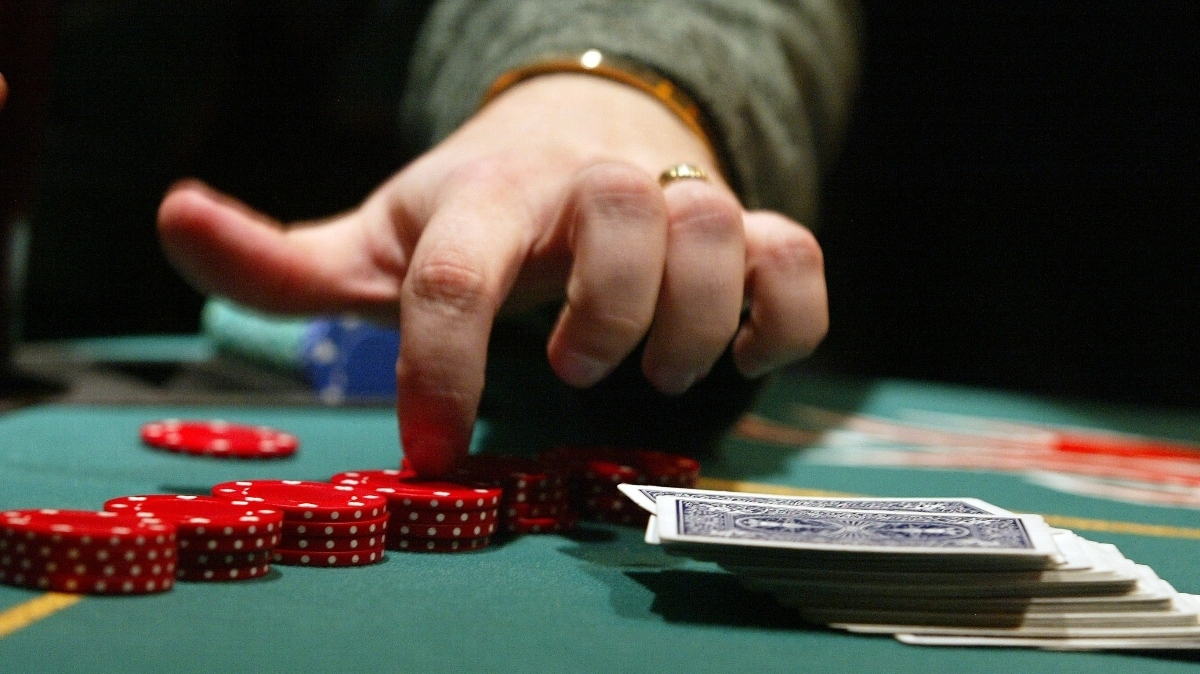 How To Play Poker: History, Types, Best Tips For Beginners How To Play Poker: History, Types, Best Tips For Beginners Are you a good poker player? If you are a beginner, don't miss this article to know the best tips to win the games. |
Bankroll management: never play above your head
How to win at poker tip #3: poor bankroll management is one of the biggest reasons for failure in poker, and is certainly not how to win at poker. It takes a lot of money to make a lot of money in this game, and that isn’t just a cheesy cliche. No matter how well you play, there are going to be days you get crushed, whether it’s in a cash game or a tournament. The cards won’t always break your way.
Sometimes the poker gods will decide your opponents are going to hit every flush draw. If you aren’t properly bankrolled, you run the risk of going broke before luck evens itself out. You should have a bankroll of at least 25 times the buy-in for the game you play, just to be safe.
If you’re on a limited budget, it may be best to start out playing online poker. You can sharpen your skills playing free poker games online far cheaper than playing with real money in a live setting.
Learn to accept defeat
Another destroyer of a poker career is bad luck. We’re all going to get stacked by a gutshot straight draw that hits from time to time. We’re all going to have losing sessions. But you can’t let that destroy your confidence or you’ll never make it in this difficult poker game.
In addition to getting dealt good hands from Lady Luck, poker requires mental toughness. Watch videos on YouTube of Phil Ivey taking bad beats. Pay attention to his reaction. He never gets upset about a bad beat, or at least he doesn’t show it, and it’s no surprise he’s one of the best of all-time. You’ll win some, you’ll lose some, and that’s the way it is with every professional poker player.
Don't be the first player to limp
Limping (just calling the big blind preflop) is an absolute no-no as the first player to enter a pot. There are two main reasons why this play should be avoided:
You can’t win the pot before the flop like you could if you raised.
You give the players behind very enticing pot odds, making it more likely you face multiple players and thus less likely you win the pot.
The only acceptable situation in which to limp is when at least one other player has already limped. This is called over-limping, and it can be a good play because you are getting great pot odds to join the action so you can hit something good on the flop, hopefully.
Fast-Play Your Strong Hands to Build the Pot and Make More Money
It’s a sad sight when a player checks their flopped nut flush three times, and then has to awkwardly table their monster of a poker hand when their opponent checks back the river. Slow-playing too often is a mistake common among players who are afraid of chasing their opponents out of the pot when they have strong poker hands.
In most cases, it’s best to bet your strong hands to build the pot and protect your equity. That’s not to say you should always bet/raise your strong hands post-flop. You can check your strong hands if:
It’s unlikely that you will be outdrawn.
There aren’t many scare cards to prevent you from getting paid on later streets.
Your opponent’s range is heavily weighted toward hands with no showdown value.
However, when you feel uncertain, just bet (or check-raise if you weren’t the preflop aggressor). Yes, it’s disappointing when your opponent folds, but that’s not nearly as disappointing as getting outdrawn or missing out on potential value.
Fold When You’re Unsure
Want to know the biggest difference between a bad player and a professional player? It’s the good player’s ability to lay down a good hand like top pair when they think they are beaten.
This sounds very simple, but it is very hard to do in practice partly because of the way our brains are built. We are naturally curious and we naturally want to win. When we fold, we surrender our chance to win the pot and we don’t get to satisfy our curiosity by finding out what our opponent has.
Calling too often and in the wrong situations is the second fastest way to lose at poker (after ineffective bluffs). Whenever you’re unsure whether to call or fold versus a bet or raise, do yourself a service and fold.
| Poker Pro Tip: When you fold in one of these situations, make sure you note down the details of the hand so you can try to figure out if you made the right fold after your session. Studying and/or discussing these sorts of hands is a great way to consistently improve your skills and fill in the gaps of your poker knowledge. |
Attack When Your Opponent Shows Weakness
Players don’t check with hands that can call multiple bets as often as they should. This means that, when they do check, they usually have a relatively weak hand that will often fold if faced with multiple bets. This is the “bluffing with nothing” situation I alluded to earlier.
When your opponent shows a lot of weakness in a heads-up pot (like if they check on the flop and the turn), you can take advantage of them with an aggressive bluffing strategy. Not only should you bet with your usual semi-bluffs, you should also bet as a pure bluff with some nothing hands, ideally ones with good blocker effects.
More Advanced Poker Strategy Considerations
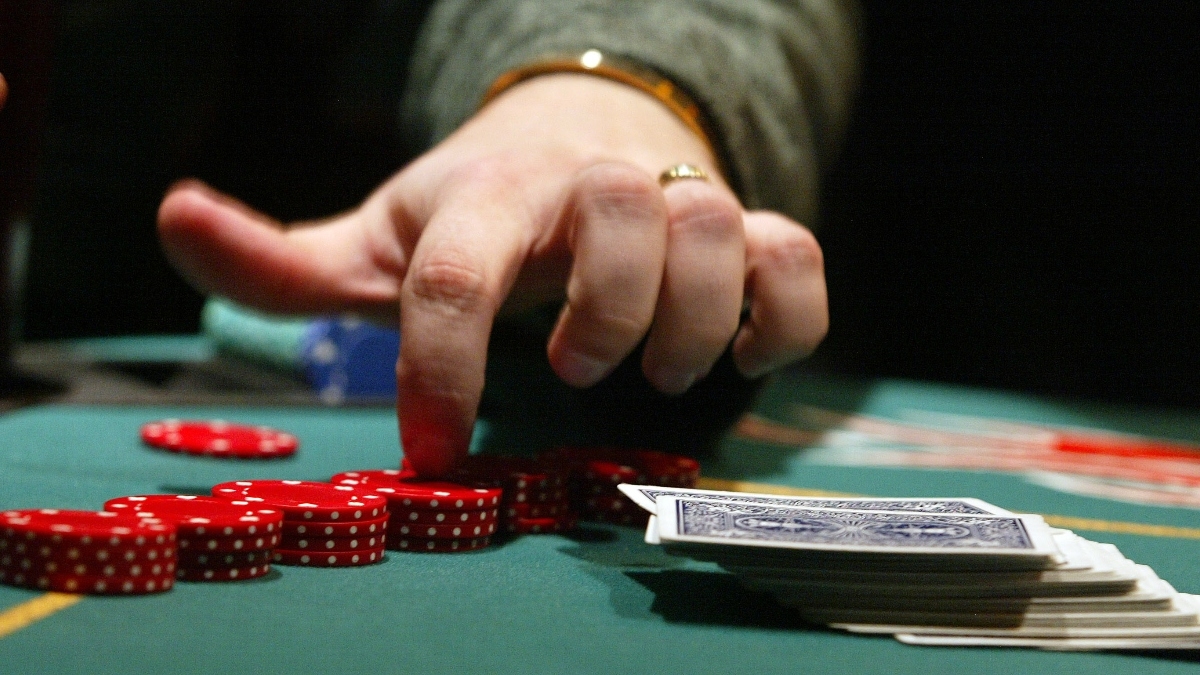 |
| Photo Action Network |
Different Styles of Play
One of the things that makes poker such a fascinating game is the sheer variety of different approaches, styles and ways to play. Most styles can be broken down into a combination of the following:
‘Tight’: an approach that values caution, playing relatively few hands and not taking too many risks.
‘Loose’: the opposite of tight, playing a lot of hands with a greater willingness to gamble.
‘Aggressive’: an approach that involves a lot of betting, opening pots and making big bets to put others under pressure.
‘Passive’: the opposite of aggressive, calling more often than betting, letting the opponent dictate how the action unfolds.
| Think about your own approach when you play poker. Do any of the terms above describe you? If your answer is ‘all of them and none of them’, you’re onto something. The ability to ‘change gears’ and switch up your style at the poker table is extremely useful, as playing any style too rigidly will make you predictable. However, we recommend that players starting out should try to focus on a ‘tight-aggressive’ combination. Adopting this style should make you comfortable with betting aggressively, which is essential for long-term success, while trying to play mostly good hands before the flop can help you learn discipline and prevent you from getting into too many difficult situations with marginal hands. As you gain more experience and improve your game, you will be able to loosen up and vary your style, but you should always try to stay aggressive. |
Understanding the Importance of Position
The dealer, or ‘button’, is usually the last player to act in a betting round, and acting last is a tactical advantage as you already know how your opponents have acted. The dealer position changes after every hand so this advantage is shared between all players to help keep the game fair.
To use this tactical edge in your favour, it’s generally wise to play more hands when in ‘late’ position (e.g. after most players have already acted) than ‘early’ position. Good players will often relax their starting hand requirements in late position, as the added benefit of position affords them greater flexibility and more options as the hand plays out.
If you’re playing opponents who have to act before you, it is said that you ‘have position’ on them, while they are ‘out of position’. This advantage can be significant.
Ensure Your Bluffs Make Sense
Good hand selection is always important, as is understanding that the more players you’re up against, the greater the possibility that at least one of them will have a strong hand. But you will also find situations where a well-timed bluff could win you a pot you might otherwise lose.
When a poker player bluffs, what are they trying to achieve? They are attempting to get their opponent to fold the best hand. It’s that simple. In most poker games the majority of your hands will be junk that you want to fold before the flop, or marginal hands you don’t want to commit too many chips with. When that’s the case, bluffing becomes very important because it gives you a second chance to win.
A successful bluff will convince your opponent that you hold cards that will beat them, so it’s important to consider how your play looks to them. If you really held the cards you want them to think you hold, would you have played the hand the way you did? Is the ‘story’ you are telling with your actions at the table consistent and logical?
When bluffing, make sure that you think through the whole hand to see if the story you are telling makes sense. If you just decide to put a bet out there as your last hope to win the pot then the chances are high that a smart opponent will see through it.
Knowing Your Odds and Outs
Odds are a way of expressing the probability of something happening. When tossing a coin, for example, there is an equal probability of the coin landing on ‘heads’ or ‘tails’ - we could express this probability as one to one (1/1, or ‘evens’) - for every one time it lands on ‘heads’, it’s likely to land on ‘tails’ one time as well. Now think about the odds of rolling a six on a six-sided die: for every one time it does land on a six, it’s likely to land on a different number five times, so we could express the odds of rolling a six as 5/1.
Now let’s look at a common situation in a poker game: you have four clubs and are waiting for that last club to fall on the river, which will make your flush and win you the pot. There are 13 clubs in a 52-card deck, and two of them are in your hand and another two are on the board, leaving nine clubs remaining. Discounting the two cards in your hand and the four on the board, there are 46 cards that could come on the river, nine of which will win you the pot - these nine cards are known as your ‘outs’.
So the odds of you making the flush are 37/9 (37 cards of the 46 cards will not make your flush, while nine cards will). This ratio of 37 to 9, and therefore your chances of making your flush, are approximately 4 to 1.
 How To Play Poker: History, Types, Best Tips For Beginners How To Play Poker: History, Types, Best Tips For Beginners Are you a good poker player? If you are a beginner, don't miss this article to know the best tips to win the games. |
 How To Win In A Casino: Best Tips & Tricks to Improve Your Chances How To Win In A Casino: Best Tips & Tricks to Improve Your Chances There are many approaches that will help you get the most out of the games. Read on to learn best useful tips and best tricks ... |
 How Many Casinos In Las Vegas and Where is The Best? How Many Casinos In Las Vegas and Where is The Best? Las Vegas is famous for a large number of casinos. How many casinos exactly does Las Vegas have? |



